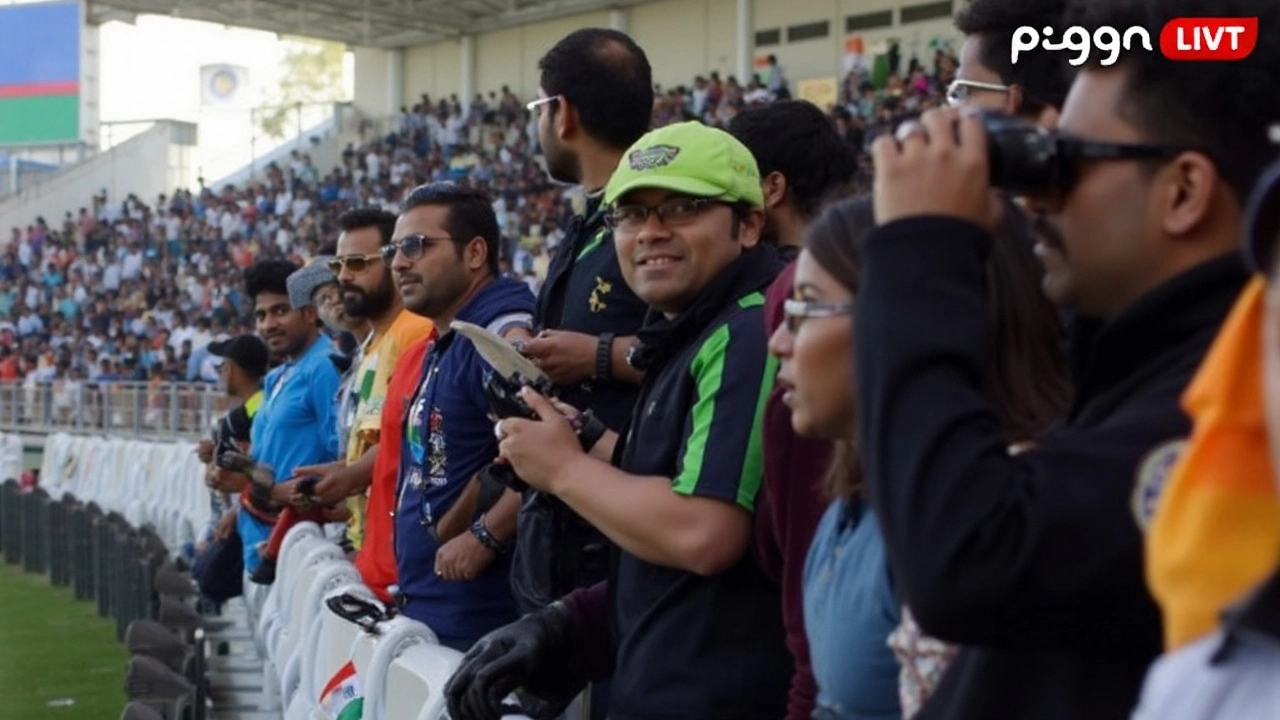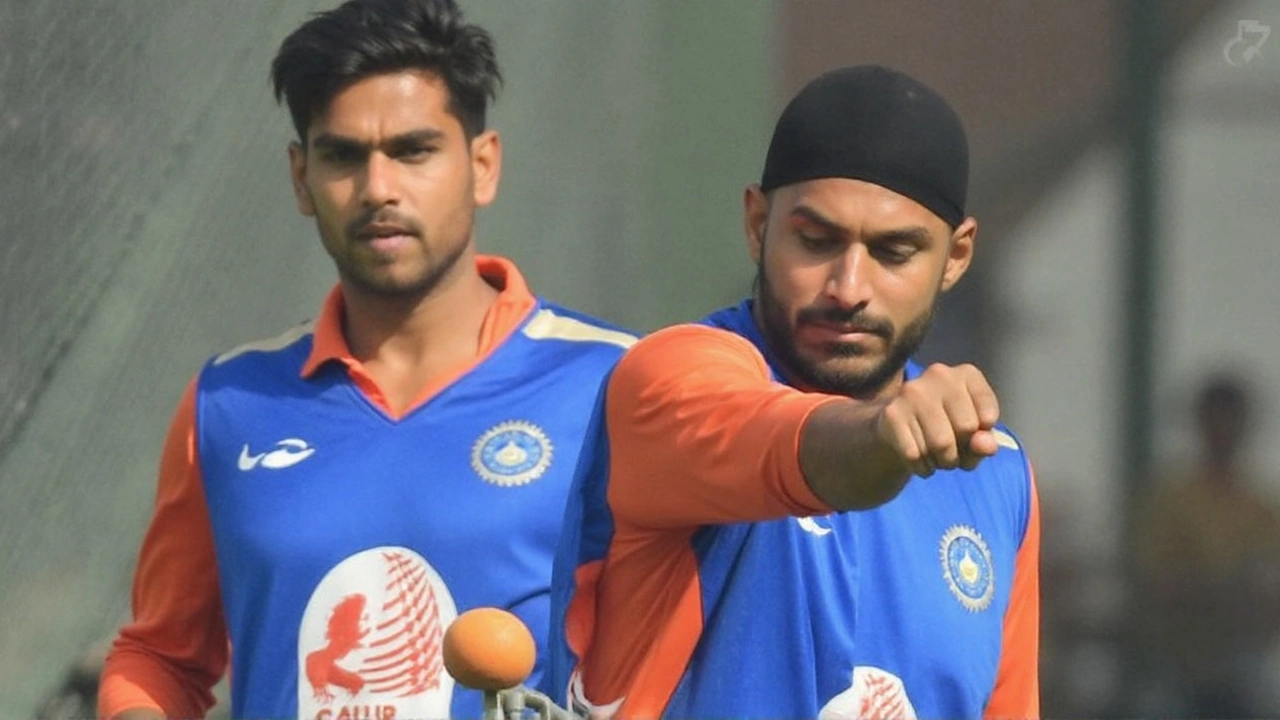Afridi’s pre-match swipe drags WCL row back into the spotlight
On the eve of a blockbuster India–Pakistan meeting in Dubai, Shahid Afridi has done what he often does best—set the tone with a sharp tongue. In a TV interview with Pakistan’s Samaa, the former captain accused a group of Indian ex-players of ducking a World Championship of Legends (WCL) game against Pakistan at the last minute last year, and singled out Shikhar Dhawan as a “bad egg.” The comments have exploded across social media just as the two teams prep for Sunday’s high-stakes clash at Dubai International Stadium.
Afridi revisited a sore chapter: the WCL fixture in England where the India Champions, featuring names like Yuvraj Singh, Dhawan, Harbhajan Singh, Irfan Pathan, and Suresh Raina, did not take the field against Pakistan Champions. That withdrawal came in the wake of online fury and national grief after the Pahalgam terror attack and Operation Sindoor. Afridi’s claim is blunt—fans had bought tickets, the players had trained, and still the game fell through. “I don’t understand the thinking,” he said, suggesting money and sentiment had tangled the whole thing.
He then cut to Dhawan. Without naming him outright at first, Afridi said one player “came with a purpose” and ignored advice from within his camp to stay off social media. He later labeled Dhawan a “bad egg,” implying the opener’s public messaging around the pullout escalated the storm. The sting wasn’t just personal. Afridi also jabbed at unnamed figures he said were “trying to prove they are Indian since birth” and now appear as commentators at the Asia Cup—comments widely read as questioning others’ patriotism.
Dhawan, for his part, has previously said he told WCL organizers in advance that he wouldn’t play against Pakistan. He was also the only Indian player to publicly explain his decision at the time. That detail matters, because it shows the withdrawals weren’t a single, silent block move. They were a patchwork of individual calls made under the pressure of a charged national mood and a flood of online outrage.
The broader picture isn’t new. India and Pakistan barely meet outside ACC and ICC events, and what used to be a rich bilateral rivalry has been frozen by politics and security concerns for over a decade. When they do meet, every ball gets loaded with meaning. A comment here, a gesture there—it all gets amplified. Afridi knows the chemistry better than most. He’s tangled with Indian players before, on and off the field, and he’s never been shy about throwing out a provocative line.
Why drag WCL into the conversation now? Because timing is a weapon. On a week when ticket prices spike, broadcast promos run nonstop, and both dressing rooms lock into match-day mode, a stray quote can create a distraction. For India, it puts ex-players in the news cycle, not the squad. For Pakistan, it sends a familiar message to supporters: we’re ready, and we haven’t forgotten last year’s snub.
There’s also the fan economy around this rivalry. Retired stars like Yuvraj, Harbhajan, and Raina still command huge audiences. A legends game between India and Pakistan sells nostalgia and national pride in equal measure. When such a game falls through, refunds don’t fix the sentiment. Afridi is tapping into that frustration, especially among those who felt deprived of a rare India–Pakistan spectacle, even if it was a veterans’ match on English soil.
Let’s be fair, though. The players who stepped back had real reasons. The Pahalgam attack had rattled households across India, and the online climate grew fierce. Public figures often become targets at times like these, with threats and pile-ons turning personal. Afridi even noted that some players feared for their families and homes. That context doesn’t make the withdrawal right or wrong, but it explains why these decisions happen in late, messy fashion.
What does this mean heading into Sunday? Expect noise. India’s cricket community, including several former internationals, has already pushed back at Afridi’s remarks, calling them needless and inflammatory. Pakistan fans, on the other hand, are rallying behind their legend. The upshot is simple: pressure has gone up another notch, and the players who will actually take the field will have to tune out everything beyond the boundary.
- Where it started: WCL, England, 2025 season, India Champions vs Pakistan Champions.
- What changed the mood: Pahalgam terror attack and Operation Sindoor, followed by online anger.
- What Afridi says: India’s legends pulled out late; Dhawan stirred the pot; some are still proving their patriotism.
- What Dhawan says: He told organizers well in advance he wouldn’t play against Pakistan.
- Where we are now: A fresh war of words before a major ACC showdown in Dubai.
That last piece is key. The Asia Cup game is the first face-off between the senior men’s sides after recent terror incidents and military operations. Security and sentiment sit heavy on this fixture, and organizers have kept the focus on staging a clean event—tight entry checks, restricted practice access, and carefully choreographed travel for both squads. None of that will slow the ratings. India–Pakistan matches routinely draw some of the biggest TV and streaming audiences in sport.

Backlash, security overhang, and a game that never shrinks
Dubai International Stadium will be packed, with a sea of blue and green and a low, throbbing buzz that you can feel in your ribs. Neutral venues like the UAE have become the default for this rivalry because they temper logistics and politics. They don’t dim the stakes. For players, it’s a compressed version of a World Cup night—fine margins, high noise, and zero patience for nerves.
In that setting, Afridi’s comments serve two purposes. They needle Indian ex-players who have influence in commentary boxes and on social platforms. And they feed his own audience a familiar underdog script: we were ready; they walked away; now watch us. You could call it gamesmanship. You could call it a distraction. Either way, it’s the kind of prelude that often comes with this rivalry.
There’s a media layer too. The legends circuit has grown fast, with ex-stars bringing star power to short tournaments that slot neatly into offseason windows. The WCL is part of that ecosystem—a mix of nostalgia and entertainment that leans on brand-heavy teams, flashy promos, and familiar names. When politics collides with that setup, it exposes how fragile these exhibitions can be. They rely on goodwill as much as contracts.
For Dhawan, the label “bad egg” carries extra sting because he still plays top-flight franchise cricket and remains a household name. He also has a clean public image and a loyal fan base. His defense—that he informed organizers ahead of time—frames the story as a planning gap rather than a betrayal. Did organizers push too late for a marquee India–Pakistan showdown? Did players get boxed in by national mood swings? Neither side has laid out a timeline in detail, so both versions coexist, fueling the argument.
Then there’s the all-too-familiar debate about athletes and patriotism. Afridi’s suggestion that some figures are still “proving they are Indian” will anger many on the other side of the border. It’s a theme that surfaces around this rivalry again and again: who is patriotic enough, who is posturing, who is profiting. Most players would rather keep their families out of this arena, stick to cricket, and let officials deal with geopolitics. Social media rarely gives them that luxury.
What should fans expect on Sunday? High-intensity cricket and a careful tone from both team managements. Captains will face questions about the comments and will try to steer the conversation back to the XI, the pitch, and the match-ups. Bowlers will hunt early swing under lights; batters will eye the square boundaries; fielders will feel the pressure of every single. And every dismissal will echo well beyond Dubai.
It’s easy to forget amid the noise, but both squads have their own checklists: powerplay control, middle-overs squeeze, death-overs discipline, and calm heads for chases. The team that nails two of those three phases usually walks out smiling. The harder part is silencing the narrative outside the ropes—especially when a legend has just lobbed a headline.
One more thing to watch is how broadcasters handle the moment. Some of the same former India stars Afridi referenced are on air this week, which makes for an awkward on-screen dance. Do they respond? Do they ignore? Viewers will read every word, grin, or raised eyebrow. That’s the circus around this fixture: it isn’t just bat and ball; it’s posture and platform.
Strip it back and the choice facing fans is simple. You can carry the grudge from the WCL into this game, or you can treat Sunday as a fresh chapter. The players on the field didn’t make last year’s call, and they’ll be judged by what happens in 100 overs—or 40, if it’s T20—under a Dubai sky. And for all the side shows, that remains the only part anyone can control once the umpire says play.
For now, the build-up belongs to a quote. Afridi has changed the conversation in the space of a few lines, pulled Dhawan into the frame, and sharpened the edges of a contest that never really needed sharpening. The rivalry stays what it has always been: exhausting, irresistible, and alive in every corner of a packed neutral ground. When the first ball is bowled at the Asia Cup 2025, the talk fades—at least for a few hours—and the cricket takes over.
